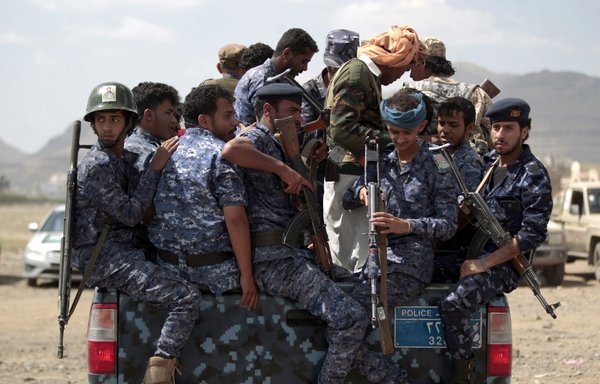UN sources: Houthi incursion into a United Nations headquarters in Sana'a and escalation of incursions

Media and UN sources reported today, Saturday, that elements of the Houthi group stormed a United Nations headquarters in the Yemeni capital, Sana'a, in a development that represents a continuation of a wave of similar incursions.
A UN source confirmed, in a statement to the media, "the increase in the pace of Houthi incursions into its headquarters over the past two days."
According to the same source, this escalation comes in the wake of a speech delivered by the group's leader, Abdul-Malik al-Houthi, last Thursday, in which he claimed the existence of "dangerous espionage cells" composed of individuals affiliated with organizations working in the humanitarian field.
The Houthi leader spoke of possessing "conclusive information" about the "espionage role" of a "cell affiliated with the World Food Program," alleging that this role aided Israel in targeting what he described as the "internationally unrecognized government" in August last year in Sana'a.
The sharp statements from al-Houthi, which explicitly accused UN agencies and organizations of participating in "espionage and aggressive activities," have raised widespread concerns among Yemenis and humanitarian workers about the worsening humanitarian crisis in the country.
This escalation comes amid the already tense relationship between Houthi authorities and humanitarian organizations, which has deteriorated sharply in recent months, especially following Israeli airstrikes that targeted leaders in Sana'a about two months ago.
For its part, the United Nations has categorically rejected these accusations, considering in previous statements that these allegations are "extremely concerning" and "endanger the lives of humanitarian workers."
Aid workers and Yemeni officials warned on Friday of the dire consequences of Houthi accusations on the future of humanitarian work in Yemen, where millions face a severe hunger crisis, rising food prices, and escalating inflation, after more than a decade of war that has left one of the largest humanitarian crises in the world, amid international and local warnings of an imminent famine that could strike the country by 2026.